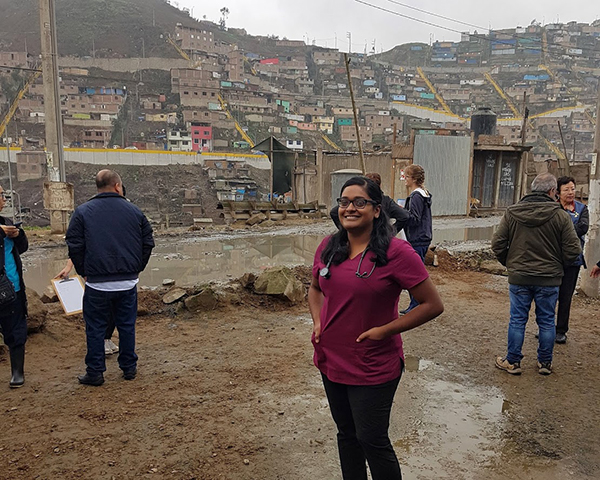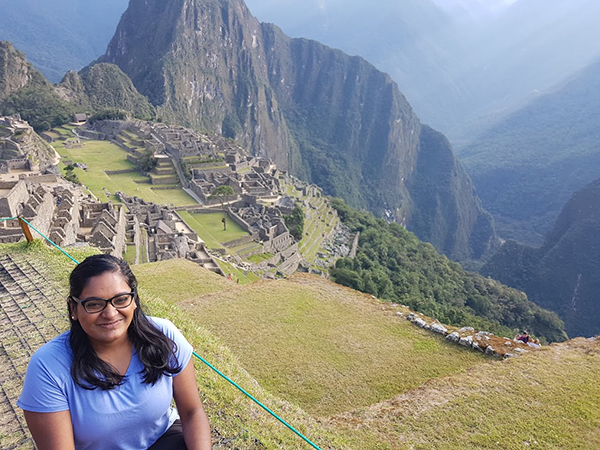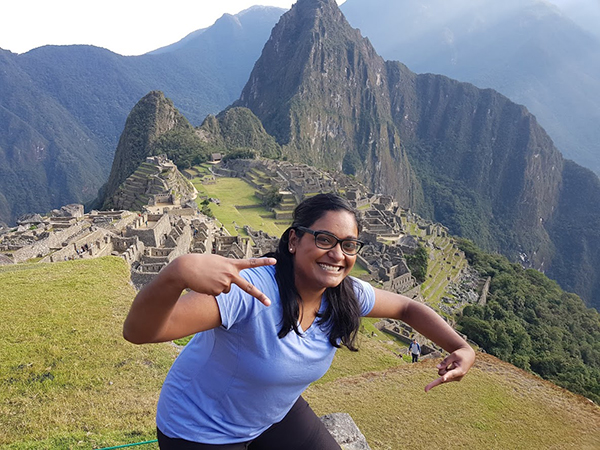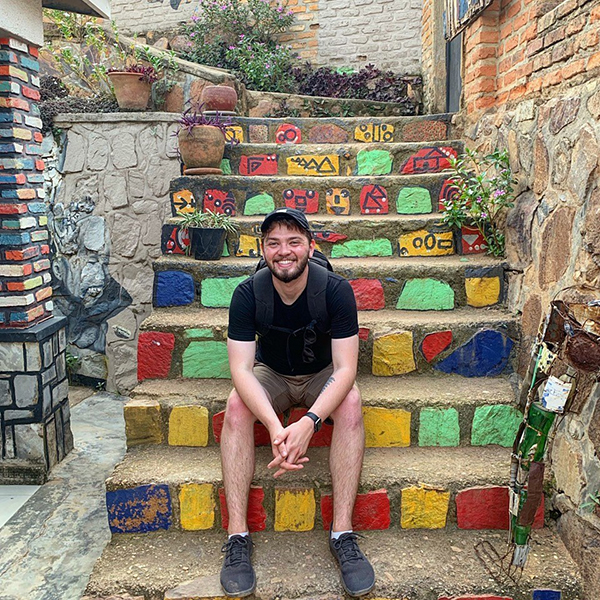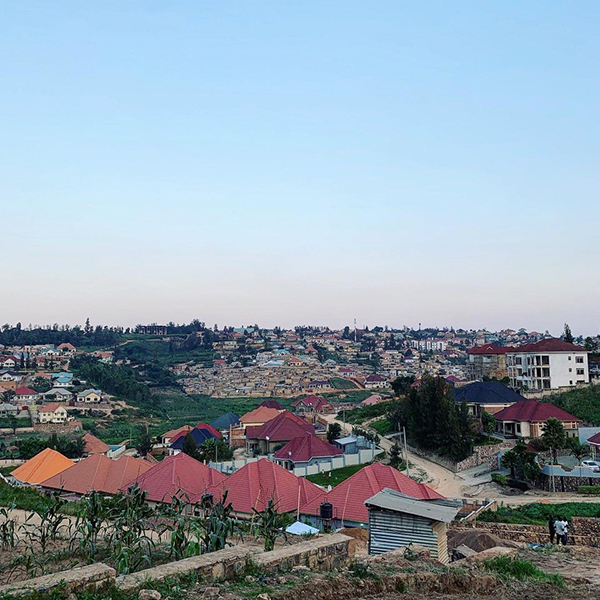Experiencing global learning early
By Max Martin, MMJC’19
It’s a chance to experience global health challenges and enhance clinical learning.
Medical students in first or second year can participate in International Health Equity Learning experiences through the School’s Internationalization Office. These pre-clinical electives abroad are designed to give learners an understanding of global health care early on in their training.
Greater understanding of the challenges of working in low-resource settings and newfound cultural awareness are just some of the highlights many students reflect upon when they return from their international pre-clinical electives.
Here are the stories of three Medicine Class of 2022 students who travelled abroad between their first and second year of studies.
Kampala, Uganda – Suna Jung
Working with patients living with HIV in Kampala, Uganda isn’t something Suna Jung will soon forget.
“I’m still processing the experience. It’s something I will always have in mind,” said Jung. “No matter where I am, I think I will always carry what I learned from this experience with me.”
Jung’s placement was at the Joint Clinical Research Centre (JCRC) in Kampala, Uganda, a not for profit, non-governmental organization that specializes in HIV/AIDS care and research.
“I learned a lot about HIV/AIDS and associated opportunistic infections, not only in terms of diagnoses and treatments, but also the psycho-social impact it has on the patient,” said Jung.
The elective was completed in conjunction with the Master of Management of Applied Science in Global Health Systems. This allowed Jung to meet other students, learn about various research and community development projects that they were working on and complete her observership, making for a well-rounded educational experience.
Most impactful for Jung was meeting two young women – both in their mid-20s – who were born with HIV and have been followed at the JCRC paediatric clinic since their childhoods.
“They were very inspiring. One is in law school and wishes to improve the rights of people living with HIV, and the other studied fashion design and social work, combining these to raise awareness about HIV to end stigma,” said Jung. “She also volunteers as a peer supporter with the JCRC to talk to kids with HIV and act as a mentor. Having a role model who has lived through the same condition can be a tremendous help for younger children who are just beginning to understand what they have and motivate them to adhere to antiretroviral therapy.”
Despite noticing challenges related to resources and infrastructure, like limited equipment or protective gear, Jung says the staff at the JCRC were extremely knowledgeable and caring, and that the care they provided was highly patient-centred and holistic.
Overall for Jung, connecting with the people was the highlight of her trip.
“Hearing personal stories of people living with HIV who are now older, who have grandchildren and are living life. It shows that life goes on and people are very resilient. It made me think about the role of a physician and how important it is to partner with our patients and support them in ways that empower them to live their full lives.”
Lima, Peru – Dharini Ilangomaran
A passion for travel, a desire to learn about health care in lower-resource countries and the chance to see rare cases brought Dharini Ilangomaran to Lima, Peru.
“I’d never been to South America, so it felt like the next adventure for me,” said Ilangomaran. Her adventure would take place at Hospital Maria Auxiliadora in a lower-income part of Lima.
“It was nice to wake up every day and go to the hospital and be on the inside,” Ilangomaran said. “I learned a lot, I asked a lot of questions, and I would find myself coming back and looking up how things are done in Canada for comparison.”
Ilangomaran’s pre-clinical elective had her observing in the obstetrics and gynecology department at the hospital.
In Peru, patients have to purchase their own supplies, including gowns, gloves, sutures and scalpels and bring it with them for physicians to use. With a variety in what patients could afford, Ilangomaran says watching doctors be resourceful was eye-opening.
“They had to think about resources for everything that they did,” she said. “They had to get central lines on the first try, and they had to rely on their skill and memory a lot more. It’s definitely more of a challenge.”
Ilangomaran is actively involved in resource stewardship initiatives back at home, acting as the Lead of the Quality-Based Care Association’s Schulich Chapter. She hopes to highlight her experience in Peru as she continues to think about resource management in Canadian health care settings.
The second-year medical student also gained a greater understanding of how social issues can impact health. In Peru, where abortion is illegal, Ilangomaran says it isn’t uncommon to see women and girls who had sought out abortions outside of a health care setting coming into the hospital with complications – something she said she would be unlikely to witness in Canada.
As she continues her medical studies, Ilangomaran is actively seeking further chances to travel and see even more global health care.
“The experience solidified my desire to become more involved in global health,” Ilangomaran said. “I learned a lot in an amazing country. Now is the time to travel and learn new things to impact where I go in the future. This experience informed a much bigger part of my foundational training because it happened so early in my education.”
Kigali, Rwanda – Zachary Weiss
As someone who aspires to work in family medicine and health care policy, particularly in low-resource settings, travelling to Kigali, Rwanda was a natural fit for Zachary Weiss.
“First and foremost, I wanted to learn how health care was conducted there,” said Weiss. “When I do start practising in Canada, I am interested in health care in rural or low resource settings. There are many places that are underserved and there isn't a lot of knowledge about how that works.”
He also sought to gain a perspective of medicine beyond the Canadian way of doing things. But what he found while on his pre-clinical elective at the University Teaching Hospital of Kigali: CHUK was that health care in Rwanda wasn’t much different, even if it’s almost 12,000 kilometres away.
“I found it really interesting just how similar the approaches to health care were in Rwanda to here at home,” he said. “I went in expecting a totally different approach to treatment protocols, but I was frankly shocked to see it was the exact same. It came down to being resourceful and creative because they may not have the means to do it the exact same.”
Learning about the Rwandan genocide of 1994 was also a unique opportunity for Weiss.
“I learned about how the genocide, which was a really dark time in the country’s past, has shaped its present,” he explained. “I really walked away from the experience feeling that the Rwandan people I met were the kindest, most warm-hearted people I’ve met in my travels.”
During his time in the hospital’s various departments, Weiss says he noticed what he called a greater “two-way street” between clinicians and patients, with both expressing mutual understanding and compassion along the health care journey. “That collaborative approach toward patient care and medicine was a nice takeaway,” he said.
Witnessing this left a distinct mark on Weiss, who plans to always keep patient-centred care front of mind throughout his career. In the future, he hopes to work in Africa with groups like the World Health Organization or Doctors Without Borders.
“The experience highlighted for me that even if we’re limited in resources or time or money, one thing we shouldn’t ever limit is working with a patient instead of telling them what to do,” Weiss said. “I don’t want to compromise on a patient-centred care approach, because being side-by-side with the patient and working through the problem together is the best approach.”
For future medical students, Weiss says taking part in a pre-clinical elective abroad is invaluable.
“You need a broad sampling of how medicine is practised everywhere. It lets you see what kind of physician you want to be and how you want to treat your colleagues and patients,” he said. “You need to go and just take that leap of faith, and I think a lot of growth can come from that.”




